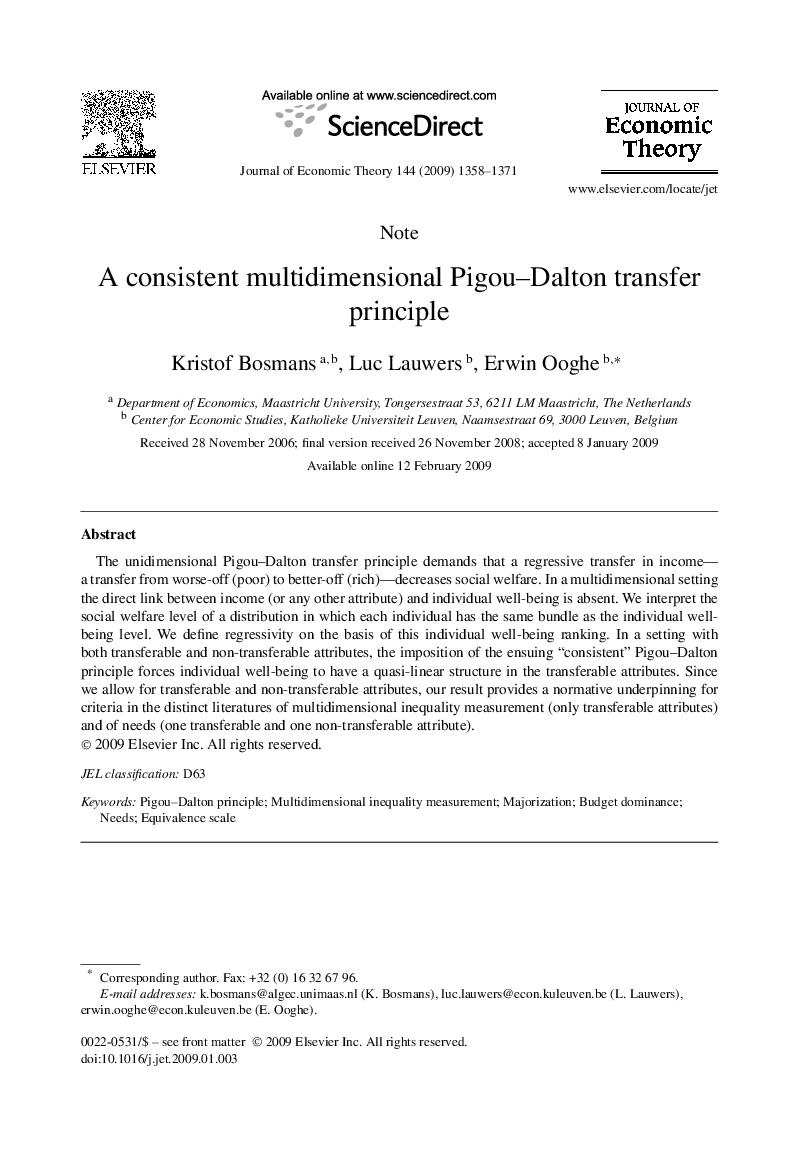| Article ID | Journal | Published Year | Pages | File Type |
|---|---|---|---|---|
| 957336 | Journal of Economic Theory | 2009 | 14 Pages |
The unidimensional Pigou–Dalton transfer principle demands that a regressive transfer in income—a transfer from worse-off (poor) to better-off (rich)—decreases social welfare. In a multidimensional setting the direct link between income (or any other attribute) and individual well-being is absent. We interpret the social welfare level of a distribution in which each individual has the same bundle as the individual well-being level. We define regressivity on the basis of this individual well-being ranking. In a setting with both transferable and non-transferable attributes, the imposition of the ensuing “consistent” Pigou–Dalton principle forces individual well-being to have a quasi-linear structure in the transferable attributes. Since we allow for transferable and non-transferable attributes, our result provides a normative underpinning for criteria in the distinct literatures of multidimensional inequality measurement (only transferable attributes) and of needs (one transferable and one non-transferable attribute).
